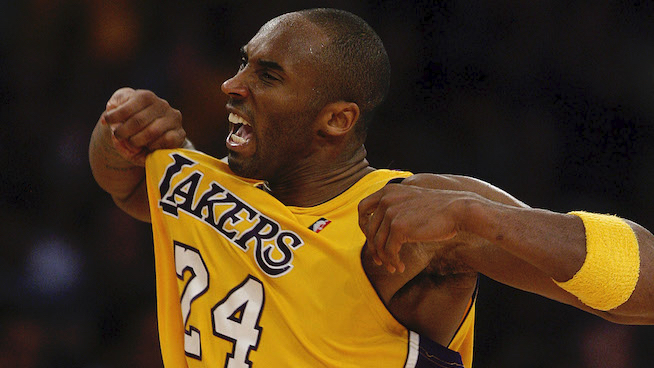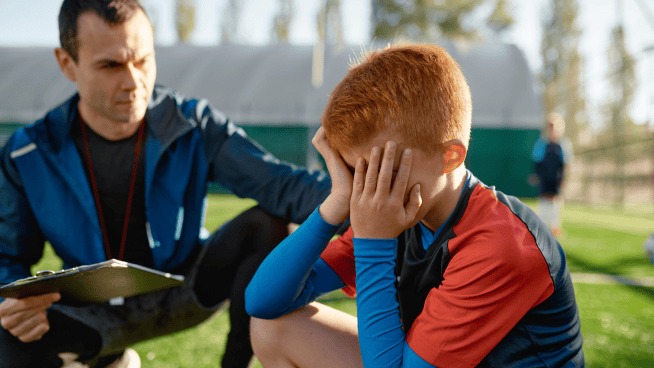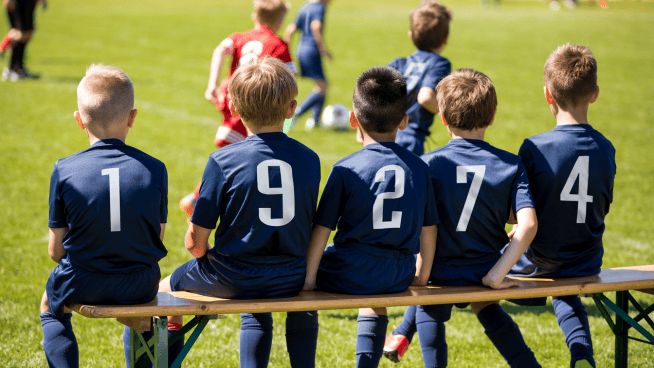Destroy the Bystander Effect to Become a Better Teammate
The bystander effect is a term from social psychology that describes situations in which individuals in a group offer no assistance to others who clearly need help. The mere presence of other bystanders greatly decreases intervention. The larger the group, the less likely someone will intervene. This happens because as the number of bystanders increases, individual bystanders are less likely to interpret the situation as a problem and less likely to assume responsibility for taking action, assuming someone else will take care of it.
What Does This Mean for Athletes?
In the context of athletic teams, the bystander effect can be used to describe lack of action by team members when something must be done to help a player or the team. Individual players know the right thing to do, but in a group setting they don’t necessarily do it. Often when a player is the only person around, he or she finds it easy to make the right decision and help out—not always, but it is easier. However, when surrounded by teammates, players often hesitate to take action, speak up in front of others or attempt to influence the team in a positive manner
What Does This Look Like?
The bystander effect occurs when athletes in a group see a problem and know what to do, but don’t step up and take action. For example:
- Teammates slacking off during a lifting session
- Teammates eating junk food before a big game
- A teammate representing the team or the school in an inappropriate way
- Teammates leaving the locker room in a mess
- A teammate trying to hide what could be a serious injury
If you see any of the above and choose not to do or say anything, then you are a bystander—someone who witnesses a problem but does nothing about it. This is human nature. We all do it.
There are many reasons why athletes in teams become bystanders and watch as others drop their standards.
1) Someone else will sort it out!
Athletes assume that someone else will intervene, so each athlete feels less responsible and refrains from doing anything.
2) I am not qualified!
Athletes assume that the coach, team trainer and team captain are more qualified to help, and that it’s not their job or their place to say or do anything to pull others up to standards expected for the team.
3) Rather be a sheep than a leader!
It’s not easy to call a teammate out. Most athletes take the path of least resistance by saying and doing nothing.
Unfortunately, these “reasons” are just excuses. You can’t blame others. You have to take the lead and uphold the standards set for your team.
The truth of the matter is that the great majority of athletes know the key things it takes to be successful in sports:
- Eat right, drink right, sleep right, rest right
- Work hard and focus on what’s important when it’s important
- Manage distractions, remember your roots and stay true to your values
- Surround yourself with quality coaches and teammates
- Listen, reflect and act
- Take responsibility for your actions and keep others around you accountable.
Leadership is an essential characteristic. Leaders take action. Leaders are able to positively influence the people around them to do the right things. Leaders understand that doing nothing is not an option, because to do nothing makes you a bystander—watching events unfold without getting involved. So if you aspire to lead, take action when your teammates need you. Be positive, encouraging and remind others of what it takes to be successful.
Photo credit: Sportsfire.com
RECOMMENDED FOR YOU
MOST POPULAR
Destroy the Bystander Effect to Become a Better Teammate
The bystander effect is a term from social psychology that describes situations in which individuals in a group offer no assistance to others who clearly need help. The mere presence of other bystanders greatly decreases intervention. The larger the group, the less likely someone will intervene. This happens because as the number of bystanders increases, individual bystanders are less likely to interpret the situation as a problem and less likely to assume responsibility for taking action, assuming someone else will take care of it.
What Does This Mean for Athletes?
In the context of athletic teams, the bystander effect can be used to describe lack of action by team members when something must be done to help a player or the team. Individual players know the right thing to do, but in a group setting they don’t necessarily do it. Often when a player is the only person around, he or she finds it easy to make the right decision and help out—not always, but it is easier. However, when surrounded by teammates, players often hesitate to take action, speak up in front of others or attempt to influence the team in a positive manner
What Does This Look Like?
The bystander effect occurs when athletes in a group see a problem and know what to do, but don’t step up and take action. For example:
- Teammates slacking off during a lifting session
- Teammates eating junk food before a big game
- A teammate representing the team or the school in an inappropriate way
- Teammates leaving the locker room in a mess
- A teammate trying to hide what could be a serious injury
If you see any of the above and choose not to do or say anything, then you are a bystander—someone who witnesses a problem but does nothing about it. This is human nature. We all do it.
There are many reasons why athletes in teams become bystanders and watch as others drop their standards.
1) Someone else will sort it out!
Athletes assume that someone else will intervene, so each athlete feels less responsible and refrains from doing anything.
2) I am not qualified!
Athletes assume that the coach, team trainer and team captain are more qualified to help, and that it’s not their job or their place to say or do anything to pull others up to standards expected for the team.
3) Rather be a sheep than a leader!
It’s not easy to call a teammate out. Most athletes take the path of least resistance by saying and doing nothing.
Unfortunately, these “reasons” are just excuses. You can’t blame others. You have to take the lead and uphold the standards set for your team.
The truth of the matter is that the great majority of athletes know the key things it takes to be successful in sports:
- Eat right, drink right, sleep right, rest right
- Work hard and focus on what’s important when it’s important
- Manage distractions, remember your roots and stay true to your values
- Surround yourself with quality coaches and teammates
- Listen, reflect and act
- Take responsibility for your actions and keep others around you accountable.
Leadership is an essential characteristic. Leaders take action. Leaders are able to positively influence the people around them to do the right things. Leaders understand that doing nothing is not an option, because to do nothing makes you a bystander—watching events unfold without getting involved. So if you aspire to lead, take action when your teammates need you. Be positive, encouraging and remind others of what it takes to be successful.
Photo credit: Sportsfire.com












